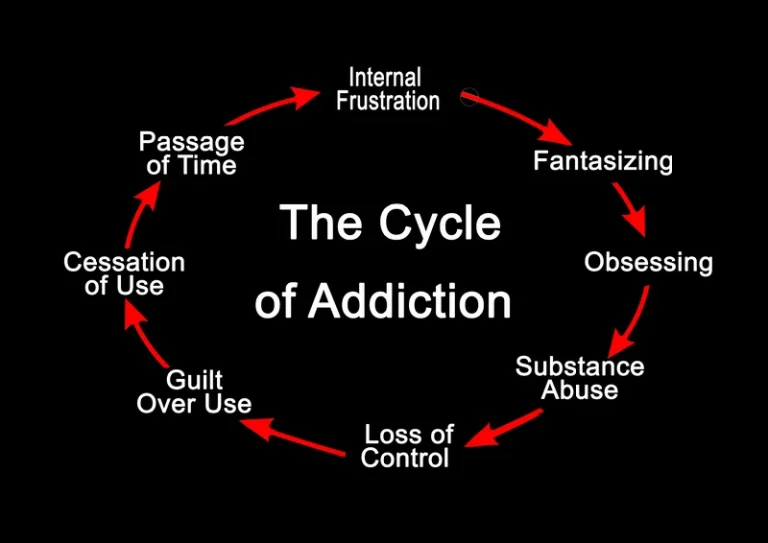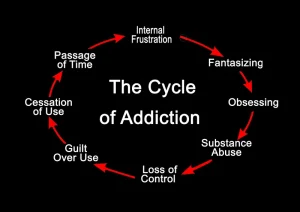
DBT is an evidence-based treatment program designed to help people with mental health conditions who have problems regulating emotions. Each week, for individual therapy sessions, patients complete a diary “card” (often done via an app), a self-monitoring form that tracks individualized treatment drug addiction treatment targets relating to moods, behavior, and skills. Patients identify and rate the intensity of emotions they experience each day—fear, shame, sadness, anger, pain, suicide attempts, and more—and space is provided to discuss emotional experience in more detail if needed. These components of DBT are applied to bring patients through four stages of treatment.
Mindfulness

Factors such as individual differences, treatment adherence, and the complexity of certain mental health conditions can contribute to varying outcomes. Stage 1 prioritizes life-threatening behaviors, teaching suicide prevention and crisis survival strategies so clients can function safely. Group skills training typically runs once a week for two-hour sessions for the duration of the therapy.
- This means that the DBT therapist will be available to contact by phone for any incidents where the client may face a challenging moment.
- “Don’t expect to walk out of your first therapy session feeling better immediately,” says Shah.
- Have you noticed that you become more disappointed than others when plans change?
- For example, mindfulness, breathing exercises, and progressive muscle relaxation are all skills you can utilize to improve your ability to tolerate distress.
- Therapy in stage 1 involves crisis intervention and keeping people safe from suicide, self-harm, or addiction issues.
What is Cognitive Behavior Therapy?
So, if you’re going through a difficult situation and having a hard time using healthy coping techniques, you can call your therapist. In this module, you learn the skills to create healthy relationships while taking care of yourself. Interpersonal effectiveness includes working through conflict, listening well, and clearly asking for what you need. If you’re looking to build skills like mindfulness and emotional regulation in therapy, DBT could be a good option for you.
What is dialectical behavior therapy (DBT)?

By Nancy SchimelpfeningNancy Schimelpfening, MS is the administrator for the non-profit depression support group Depression Sanctuary. Nancy has a lifetime of experience with depression, experiencing firsthand how devastating this illness can be. In practice, the therapist validates that an individual’s actions “make sense” within the context of their personal experiences without necessarily agreeing that the actions are the best approach to solving a problem. Nancy Schimelpfening, MS is the administrator for the non-profit depression support group Depression Sanctuary.
Among people with borderline personality disorder, DBT has been shown to reduce suicidal and self-injurious behaviors by improving behavioral control and emotion regulation. CBT aims to change negative thought processes to impact mood and behaviors positively. Research indicates that CBT is an effective treatment for depression, anxiety, substance misuse, eating disorders, and more.
Stages of DBT treatment

Acceptance-based techniques were included to ensure participants felt supported and validated before they were asked to focus on change. In addition, dialectics were incorporated to allow therapists and participants in treatment to focus on the synthesis of polar opposites, such as acceptance and change. This helped them to avoid becoming trapped in patterns of extreme position-taking. DBT is considered a subtype of cognitive behavioral therapy (CBT), but there’s a lot of overlap between the two. Both involve talk therapy to help better understand and manage your thoughts and behaviors. It’s an approach to therapy that can help you learn to cope with difficult emotions.
A meta-analysis that reviewed several studies concluded that DBT is effective for treating symptoms of BPD 11. Borderline Personality Disorder (BPD) can cause major difficulties with managing emotions and subsequently, daily life. Dialectical Behavior Therapy (DBT) has shown to be effective in treating BPD symptoms and allowing individuals to build a life worth living. DBT California offers DBT programs for Adults, Adolescents and Friends & Family in our Orange https://ecosoberhouse.com/article/how-to-build-alcohol-tolerance-improve-your-alcohol-tolerance-now/ County (Newport Beach), Torrance and Beverly Hills Area (Los Angeles) offices.
DBT for Specific Conditions
There is increasing evidence that DBT skills training alone is a promising dialectical behavioral therapy intervention for a wide variety of both clinical and nonclinical populations and across settings. In these sessions, you’ll talk with your therapist about whatever you’re working on or trying to manage. In times of crisis, you might use certain coping strategies to help you deal with your emotions. Some of these, like self-isolating or avoidance, don’t do much help, though they may help you temporarily feel better. Others, like self-harm, substance use, or angry outbursts, might even cause harm.
- DBT helps those with BPD by teaching them how to regulate emotions and increase their tolerance to distressing situations.
- Research evidence shows that BPD can be beneficial for improving core symptoms of bipolar disorder, and it’s feasible for treating populations with this condition 7.
- DBT adds the additional components of mindfulness and interpersonal skills training, and it is a newer modality than CBT 12.
- Dr. Jenni Jacobsen, PhD is a medical reviewer, licensed social worker, and behavioral health consultant, holding a PhD in clinical psychology.
- If a therapist does not regularly attend a consultation team, they are not doing comprehensive DBT.
Distress tolerance
It is recommended that people seeking treatment find a licensed mental health professional who has completed a specialized DBT training or certificate program. The information on the diary card lets the therapist know how to allocate session time. Life-threatening or self-injurious behavior takes priority, not surprisingly. The therapist and patient discuss more skillful ways to solve emotional and life problems. CCDBT is now offering a time-limited intervention for parents of teens or young adults with emotional and behavioral difficulties. In this intervention, a Parent Coach will work with parents through several sessions to generate a customized behavior plan based on in-depth assessment of parent and family needs.
Dialectical behavior therapy: What is it and who can it help?

Based on research, there is truth to this theory, as negative emotions tend to come before substance misuse. Therefore, DBT skills training can be beneficial for treating substance use disorders, as emotion regulation skills can help people choose healthier coping strategies when they are faced with stress or emotional pain 9. Dialectical Behavior Therapy is significant because it offers a structured and holistic approach to treating individuals with emotional dysregulation and interpersonal difficulties. The therapy’s focus on both acceptance and change helps clients build a life worth living while addressing the underlying issues that contribute to their emotional distress. Dialectical behavioral therapy (DBT) is a structured form of psychotherapy used to treat borderline personality disorder and other mental health disorders. It focuses on regulating emotions and reducing self-harm or suicidal behaviors by teaching mindfulness and the acceptance of change.
